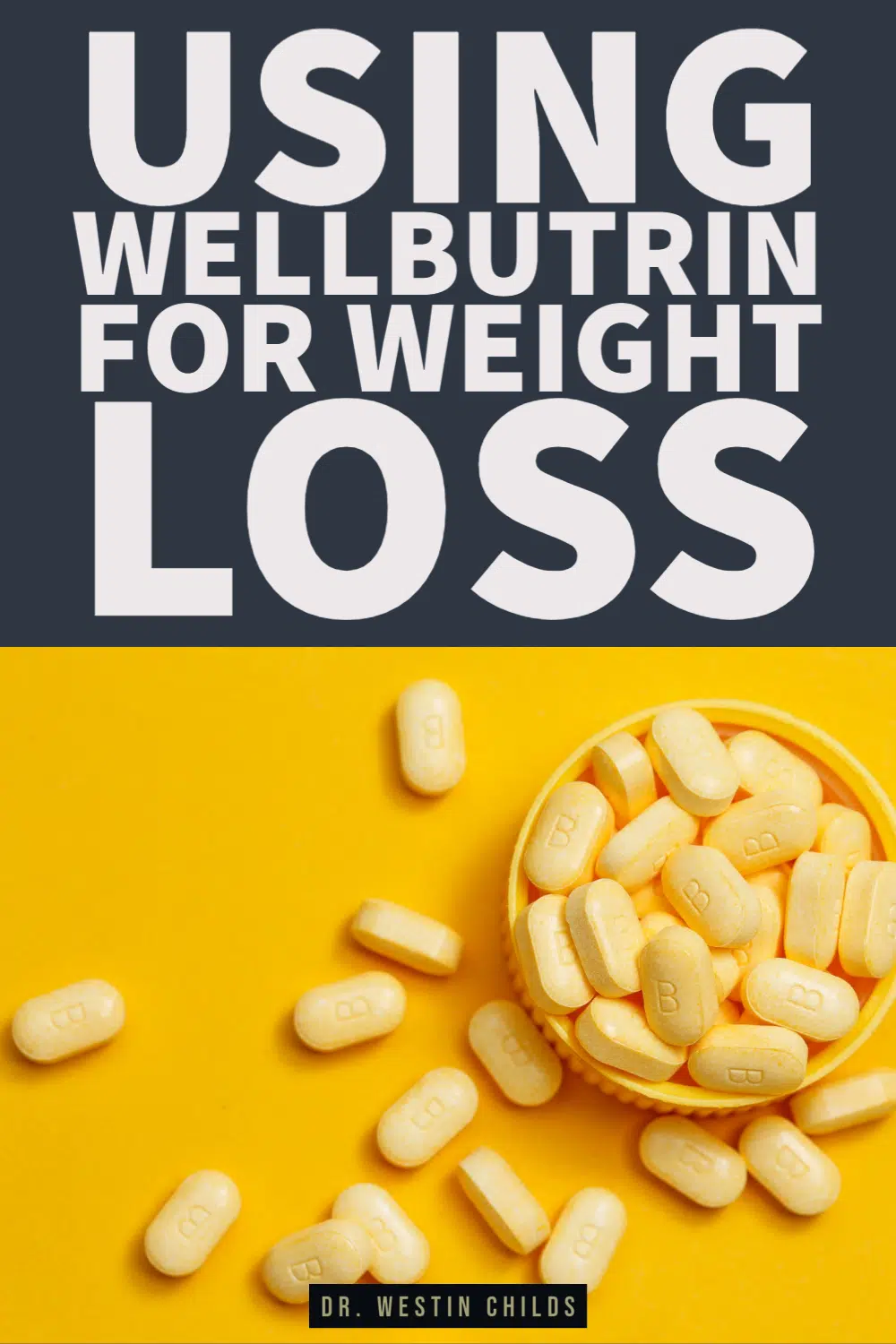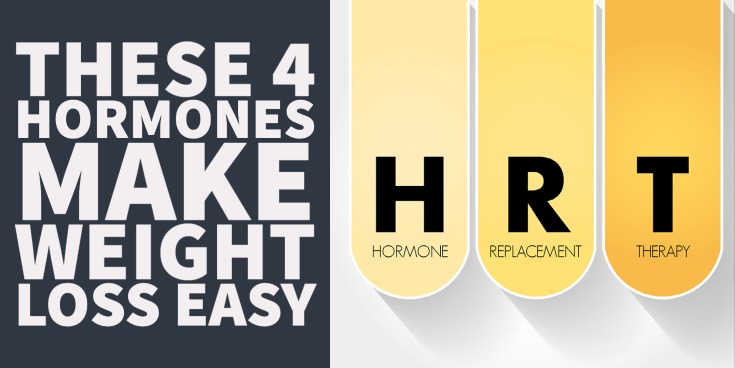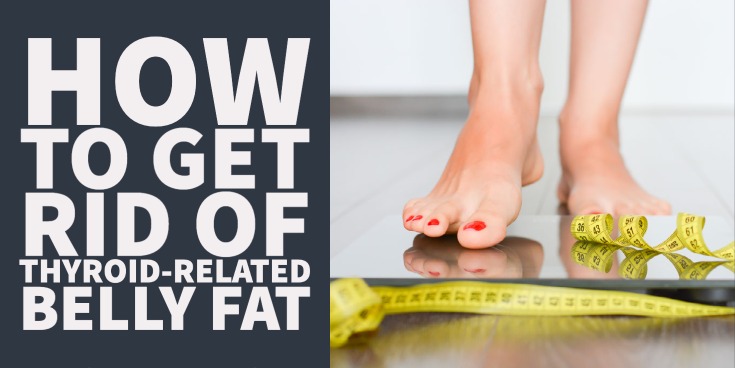No doubt most of you have at least heard about Wellbutrin.
Most of you are probably familiar with its use as an anti-depressant, but did you know that it can also help with weight loss?
Or that it is actually compounded with another medication (naltrexone) and is part of one of the most popular weight loss medications currently available?
The answer to that is probably not, which is why we are going to discuss using Wellbutrin for weight loss here.
Let’s dig into how Wellbutrin helps with weight loss and determine if it’s right for you (because it certainly doesn’t work for everyone)…
Does Wellbutrin Help with Weight Loss?
Just because a medication may help with weight loss doesn’t mean it actually does a good job.
When we talk about weight loss medications we always need to be asking the following questions:
1. How effective is the medication at causing weight loss?
And:
2. Will the medication work for me or does it only work for certain people?

These questions are VERY important.
We could have a medication that works 100% of the time, but only causes 1-2 pounds of weight loss.
Or we could have a medication that helps people lose 20-40 pounds but only works in 20% of the population.
But why do we have such high variability between medications?
This has to do with HOW weight gain occurs, and it’s different for each person.
Hopefully, you understand that weight gain has more to do with your metabolic and hormone function than it does with how many calories you are consuming.
Yes, calories do matter – but they take a backseat to the influence that powerful weight-altering hormones such as leptin and insulin.
Before we jump into how Wellbutrin helps with weight loss we need to discuss the basics:
First off, Wellbutrin is a medication most commonly prescribed to treat depression, anxiety, and certain eating disorders.
It’s also known as Bupropion (which is the generic version of Wellbutrin).
Wellbutrin exerts its influence on mood and weight by altering specific neurotransmitters and by acting as a norepinephrine and dopamine uptake inhibitor (1).
Wellbutrin basically acts to increase the amount of adrenaline (norepinephrine) at the neurotransmitter synapse and it is likely through this influence that it helps modulate appetite and increase metabolism leading to weight loss.
With that in mind let’s answer the basic questions we mentioned previously:
How effective is Wellbutrin at helping with weight loss?
Most studies have shown that Wellbutrin is superior to a placebo in helping with weight loss.
I’ve included a graph that outlines the relative effectiveness of various studies as they compare to placebo below:
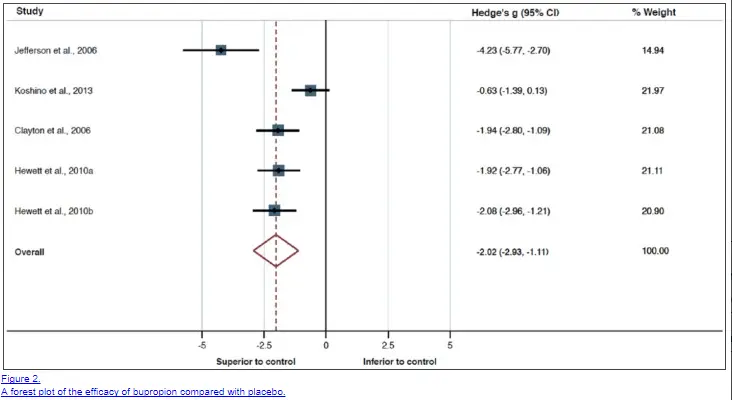
You can see that in the studies listed, 4 of the 5 led to weight loss which was superior to placebo indicating that most of the time it is effective.
Individual studies (2) also tend to agree with this assessment…
This study showed that various doses of Wellbutrin were very well tolerated and were associated with a 24-week weight loss of 7.2% and 10.1% based on dose.
What’s also important is that this weight loss was sustained for up to 48 weeks!
Another study (3) shows similar results:
This study showed that Bupropion (Wellbutrin) was more effective than placebo in achieving weight loss at 8 weeks in obese and overweight adult women.
What’s interesting in this study is that certain patients were referred to as “initial responders” and these patients had more success long-term than those who did not respond as quickly.
This concept brings us to our next question:
Will Wellbutrin help ME lose weight?
Not everyone will achieve weight loss by using Wellbutrin, in fact, there is a chance it simply won’t help you at all.
Remember:
You should do your best to identify WHY you have gained weight, to begin with.
Is your thyroid functioning properly?
Do you have leptin resistance or insulin resistance?
Is your metabolism functioning optimally?
Are you peri-menopausal or post-menopausal?
If you’ve answered YES to any of the questions listed above then Wellbutrin is probably NOT the best weight loss medication for you.
It doesn’t mean it won’t work at all, it just means that Wellbutrin is not targeting the root cause of your weight gain and isn’t likely to lead to significant weight loss over time.
With that in mind let’s talk about who SHOULD use weight loss and who will benefit the most from using this medication.
Who should use Wellbutrin for Weight Loss?
If you have any of the following conditions then Wellbutrin may help you:
- Current eating disorder or a history of an eating disorder (Anorexia/bulimia/food addiction/etc.)
- Patients with severe food cravings or the inability to resist food
- Patients with Body set point malfunction (meaning you have difficulty losing weight and keeping it off)
- Patients with obesity who also suffer from depression or anxiety
- Patients who struggle with emotional eating
You’ll notice that many of the conditions listed above have a psychological component.
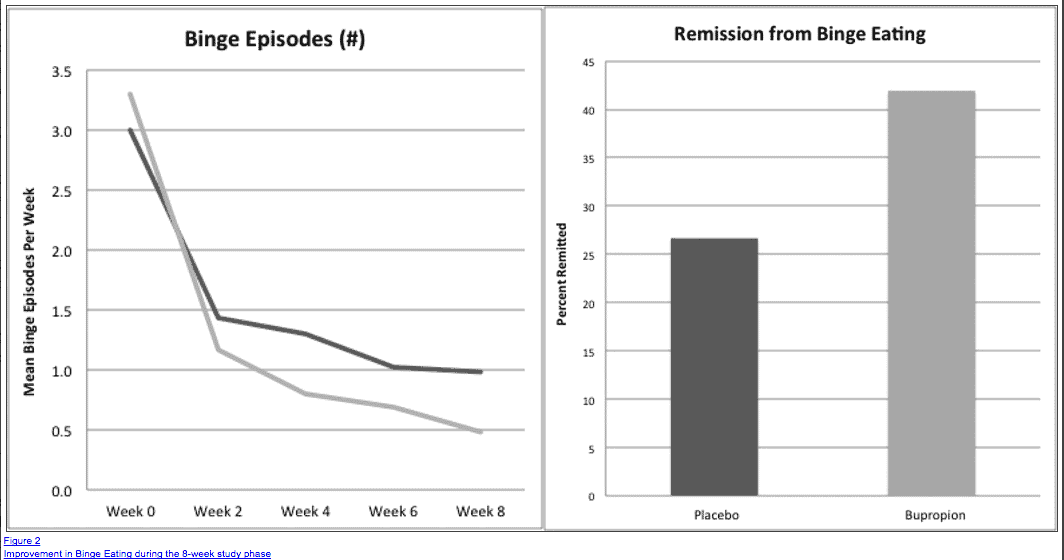
This is primarily because Wellbutrin acts to influence neurotransmitter levels which are how nerves communicate with one another.
Does this mean that it won’t work for you unless you fit all of the criteria above?
Not necessarily, it just means that those who fall into those categories are more likely to respond to it.
It’s important to realize that this list is for those who use Wellbutrin by itself (which I recommend against).
You can expand the list of people who would potentially benefit from using Wellbutrin by combining Wellbutrin with other specific medications.
How much weight will you use using Wellbutrin by itself?
If Wellbutrin is going to work for you, studies indicate that you will probably lose about 2-10% of your initial body weight (4).
That means if you are 200 pounds the best-case scenario is that Wellbutrin helps you lose 20 pounds.
If you are only 150 pounds, it’s possible that Wellbutrin may only help you lose a couple of pounds.
These numbers may not sound great at first but you have to realize that this data stems from the use of Wellbutrin as monotherapy (meaning using Wellbutrin by itself).

As with any other weight loss medication (or weight loss therapy) I highly recommend against this strategy.
It’s far better to use MULTIPLE therapies at once or to combine medications to get a synergistic effect.
For instance:
By adding a medication known as naltrexone (more information below) you can increase weight loss (5) and expand the number of people that will benefit from taking these medications.
Combining Wellbutrin with Naltrexone (LDN)
Scientists have found that many medications lead to weight loss by themselves, but they have also found that combining medications often lead to even better results.
This holds true for the combination of Wellbutrin plus naltrexone.
This combination is known as Contrave.
We already know how Wellbutrin works, so how does Naltrexone work?
Naltrexone increases the effectiveness of Wellbutrin by targeting fat-storing hormones such as insulin.
Naltrexone also helps reduce chronic pain, reduce inflammation (6), and improve thyroid function (7).
When you start adding these benefits to Wellbutrin you can see now that MANY more people may benefit from using it.
If you have any of the following conditions then you may benefit more from the combination of Wellbutrin plus Naltrexone over just Wellbutrin alone:
- ALL of the conditions listed above for Wellbutrin PLUS:
- Patients who suffer from thyroid problems (Hypothyroidism, Hashimoto’s thyroiditis, Thyroid resistance, etc.)
- Patients with chronic inflammation or chronic pain syndromes (these often lead to weight gain through the use of narcotics)
- Patients with blood sugar issues, type II diabetes, or insulin resistance
- Patients suffering from autoimmune diseases
- Patients who fall on the PCOS spectrum or who have a known diagnosis of PCOS
By adding a low dose of naltrexone the list of conditions and people that benefit from Wellbutrin increases dramatically.
I discuss how to add Naltrexone to Wellbutrin in a separate post.
*Please note that I have no affiliation or interest in the makers of Contrave or Wellbutrin. I only discuss the methods that I have used that have worked for patients and share this knowledge with you.
Other Anti-Depressants vs Wellbutrin
Will other anti-depressants work just like Wellbutrin?
Actually, not really.
Wellbutrin is considered unique among anti-depressants in that it is at LEAST weight neutral and at best usually helps with weight loss somewhat.
Other anti-depressants, especially the class of selective serotonin reuptake inhibitors (SSRIs for short) are actually well known to cause weight gain (8) to the tune of 5-10 pounds (or more depending on the person).
It’s worth pointing this out because so many people take anti-depressants (usually of the SSRI class) which may be making weight loss very difficult.
For this reason, I generally recommend against the regular use of SSRIs in obese patients and instead would recommend a trial of Wellbutrin instead.
Wellbutrin & Weight Gain
It’s also worth pointing out that Wellbutrin may actually cause weight gain in some individuals.
While most people do experience weight loss by taking Wellbutrin, some unlucky people will experience weight gain.
The exact mechanism behind why this occurs is not well understood (nor is it likely the subject of future studies) however it probably relates to several factors.
First:
Wellbutrin has an impact on appetite and eating behavior (9).
Generally, this benefit extends to help reduce binge eating and promote normal caloric intake but it can go haywire in some individuals and increase food cravings and food intake dramatically.
If you notice an INCREASE in food cravings while taking Wellbutrin then it may not be worth continuing (if your sole purpose for using it is weight loss).
Second:
We know Wellbutrin generally promotes hormone balance but it is possible that it may promote the excessive production of a stress hormone known as cortisol.
This effect may be mediated through excessive adrenaline (norepinephrine) levels, but it’s not clear.
If you find that taking Wellbutrin is making you feel more jittery or anxious then this may be happening to you.
Third:
Wellbutrin may influence sleeping behavior and promote insomnia (10).
Lack of sleep (11) is a known cause of weight gain and you should not take this medication if it interferes with your ability to sleep.
Wellbutrin Dosage for Weight Loss
Is there a specific dose necessary for weight loss if you are using Wellbutrin?
I have found that IF Wellbutrin is going to help you lose weight you usually need to be taking around 100 to 300mg per day.
If you want to combine this with Naltrexone then that dosage ranges from 4.5 to 13.5mg per day (used in conjunction with Wellbutrin).
What about the difference between Wellbutrin IR, Wellbutrin SR, and Wellbutrin XL?
All of these are names for the same medication, but differ in how they administer the medication to your body throughout the day.
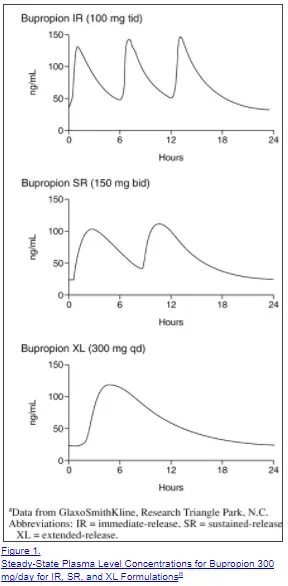
I find the most benefit for patients when using Wellbutrin or Bupropion SR or IR.
By taking the medication several times throughout the day you will allow for a more stable dose and higher concentration in your serum.
The only reason to reduce the dose or to switch to XL is if you are having issues with sleep.
In this case, you would benefit from using the XL first thing in the morning or using the IR twice per day (but skipping the final dose).
Determining the dose you need is based on how you respond to Wellbutrin and if you experience any negative reactions while taking it.
For example:
Extremely sensitive patients may only need 100mg per day.
Should you use it?
Does this mean that you should run out and ask your doctor to prescribe you Wellbutrin?
Not necessarily.
While Wellbutrin MAY lead to weight loss it doesn’t mean that everyone should use it.
Whenever you take medication (or undergo any therapy or treatment) you always need to think about the benefits and compare them to the potential consequences or side effects.
While Wellbutrin does provide potentially significant benefits – up to 10% weight loss over several months, it doesn’t come without any side effects.
Also, Wellbutrin tends to work the best in a select subset of patients known as “responders”.
These “responders” tend to fit the criteria listed above (those with eating disorders, body set point malfunction, and/or depression).
If you aren’t an “initial responder” then you may have better luck with other medications.
My recommendation is to always target your therapies and treatments to your body and that means trying to find the root cause of your weight gain.
Side Effects to Watch out for
If you do decide to use Wellbutrin you should be aware of the potential side effects associated with this medication.
I’ve listed the most common side effects below (12):
- Weight Gain
- Insomnia
- Anxiety
- Jittery sensation or feeling restless
- Dry mouth
- Shaking sensation
If your goal is to use Wellbutrin for weight loss then you should stop the medication immediately if you experience weight gain or insomnia as both of these side effects may blunt your progress.
Lastly, you can generally prevent many of these side effects by starting off with a low dose and titrating only when necessary.
Having said that, some people will simply not tolerate the medication and should not use it.
Back to you
Wellbutrin is an atypical anti-depressant in that it tends to help with not only depression but weight loss as well.
It is unique among anti-depressants in that almost all other anti-depressant medications tend to cause weight GAIN.
Wellbutrin works to help with weight loss by modulating appetite and by altering specific neurotransmitter levels.
Wellbutrin generally helps people lose anywhere from 2-10% of their body weight over several months.
This benefit can be increased by intelligently combining Wellbutrin with other medications such as Naltrexone and it can also be used in conjunction with appetite-suppressing supplements such as those found here.
Now it’s your turn:
Are you using Wellbutrin?
Is it working for you?
Why or why not?
Leave your comments below!
